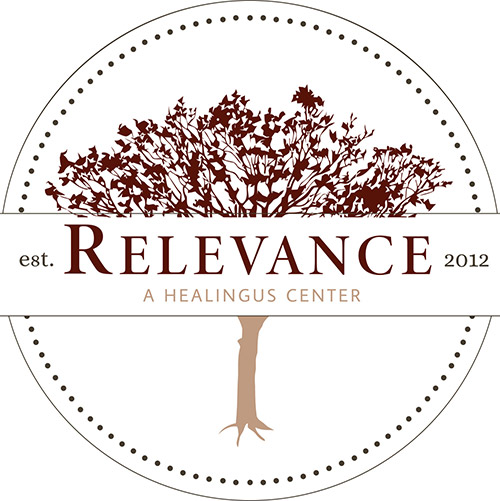Alcohol is one of the most widely consumed substances worldwide, often used to celebrate milestones, unwind after a long day, or enjoy social gatherings. While moderate drinking can be a normal part of life for some, alcohol becomes problematic when it is misused or relied upon in unhealthy ways. Recognizing the signs of alcohol abuse is critical for identifying when professional help may be necessary. At Relevance Recovery, we understand the struggles associated with alcohol use disorder and provide evidence-based care to guide individuals toward lasting recovery.
In this blog, we’ll explore the top 10 signs of alcohol abuse to help you or your loved ones determine whether it’s time to seek professional support at a dedicated treatment program like the one we offer.
1. Drinking More Than Intended
One of the earliest signs of alcohol abuse is drinking more than planned. You might intend to have just one drink but find yourself consuming far more than initially intended. Over time, increasing tolerance may lead to drinking larger amounts to achieve the same feeling or buzz.
2. Neglecting Responsibilities
Alcohol abuse can interfere with daily responsibilities, such as work, school, or family obligations. If drinking becomes the priority over fulfilling commitments, it may be time to ask whether alcohol use has crossed unhealthy boundaries.
3. Using Alcohol to Cope
One common sign of alcohol abuse is using alcohol to manage stress, sadness, or anxiety. While it may seem like drinking provides temporary relief, habitual reliance on alcohol to cope can lead to addiction and worsen underlying mental health problems. At Relevance Recovery, we understand the root causes of alcohol dependence and offer holistic care to address mental health alongside substance use.
4. Experiencing Frequent Hangovers or Withdrawal Symptoms
Alcohol abuse often brings physical consequences. Regular hangovers may cause fatigue, headache, dizziness, or nausea. Additionally, withdrawal symptoms such as shakiness, sweating, irritability, or cravings when alcohol isn’t consumed can indicate dependence. Withdrawal can be dangerous without medical supervision, which is why professional support during detox is critical.
5. Increased Risk-Taking Behavior
Alcohol impairs judgment, leading some individuals to take unnecessary risks. Risk-taking behaviors associated with alcohol abuse include drunk driving, unsafe sex, financial irresponsibility, and engaging in reckless activities that compromise safety.
6. Lying About or Hiding Alcohol Use
Many people who abuse alcohol feel shame or guilt about their drinking habits, leading them to lie about how much they drink or hide alcohol consumption altogether. If alcohol use is hidden from loved ones, this could point to a deeper issue.
7. Loss of Interest in Hobbies and Activities
Another sign of alcohol abuse is losing interest in hobbies, passions, or activities you once enjoyed. Alcohol may begin to take up more and more of your time, replacing things like sports, social events, or other fulfilling endeavors. This shift can contribute to isolation and deteriorating mental health.
8. Relationship Problems
Alcohol abuse often creates tension in relationships with family, friends, or romantic partners. Disputes over drinking habits, broken trust, or neglect of those closest to you are common when alcohol begins to dominate priorities.
9. Inability to Stop or Control Drinking
Alcohol abuse frequently leads to an inability to cut back or stop drinking despite a strong desire to do so. This loss of control can signify addiction, where alcohol use feels compulsive rather than a conscious choice.
10. Alcohol Interferes with Physical or Mental Health
Alcohol abuse has serious consequences for both physical and mental health. Chronic drinking can cause liver damage, heart disease, and weakened immunity, while contributing to anxiety, depression, and even suicidal thoughts. According to the Centers for Disease Control and Prevention (CDC), excessive alcohol consumption contributes to approximately 140,000 deaths in the U.S. annually (source). Seeking treatment earlier rather than later can help prevent these devastating outcomes.
How Relevance Recovery Can Help if You Experience Signs of Alcohol Abuse
If you’ve recognized any of the signs of alcohol abuse in yourself or a loved one, don’t wait to seek help. At Relevance Recovery in Freehold, NJ, we’re committed to guiding individuals toward freedom from alcohol dependency through comprehensive, evidence-based care.
Our program includes:
- Medical Detox: Safely manage withdrawal symptoms in a supervised setting.
- Therapy: Includes individual counseling, group therapy, and family support to address the root causes of addiction.
- Holistic Care: Incorporates wellness practices such as yoga, meditation, and art therapy to support emotional and mental well-being.
- Relapse Prevention: Equips you with the tools needed to maintain sobriety long after treatment ends.
We understand that recovery is a journey, not a destination, which is why we personalize every care plan to suit your unique needs and goals.
Don’t Ignore the Signs of Alcohol Abuse. Contact Relevance Recovery Today
Recognizing the signs of alcohol abuse is the first step toward reclaiming control and improving your quality of life. Don’t wait to seek help if alcohol is interfering with your relationships, health, or happiness.
At Relevance Recovery, we offer compassionate, professional support to help you break free from alcohol dependency and build a healthier, more fulfilling life. Contact us today to learn more about our programs, verify insurance, and take the first step toward lasting recovery.
Relevance Recovery: Where hope meets healing.



















